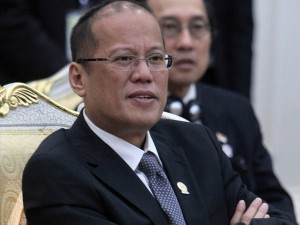Impunity in human rights abuses persists under Aquino gov’t—US report
MANILA, Philippines—Impunity in the area of human rights violations persists under the Aquino administration, according to the US Department of State.
In a report posted on the website of the US Embassy in Manila, the State Department said the Aquino administration faced more than 20 cases of major human-rights violations, including extrajudicial killings, but investigated and prosecuted only a few of those cases.
US Secretary of State Hillary Clinton said her department’s human rights reports “chronicle the stories defending human rights in almost 200 countries around the world,” including the Philippines.
“Our reports are founded on the simple truth at the heart of the Universal Declaration of Human Rights, that all people are born free and equal in dignity and rights,” Clinton said. “Respect for human rights is not a Western construct or a uniquely American ideal. It is the foundation for peace and stability everywhere.”
Clinton called the reports “part of our broad commitment to promote human rights.”
Article continues after this advertisementAccording to the State Department, the leading human rights problems in the Philippines are “continued arbitrary, unlawful and extrajudicial killings by national, provincial and local government agents and by antigovernment insurgents; an under-resourced and understaffed justice system that resulted in limited investigations, few prosecutions and lengthy trials of human rights abuse cases; and widespread official corruption and abuse of power.”
Article continues after this advertisementOther human-rights problems in the country include “allegations of prisoner/detainee torture and abuse by security forces; violence and harassment against leftist and human rights activists by local security forces; disappearances; warrantless arrests; lengthy pretrial detentions; overcrowded and inadequate prison conditions; killings and harassments of journalists; continued internal displacement of [people]; violence against women; government restrictions on the provision of birth-control supplies.”
The State Department report also mentioned “abuse and sexual exploitation of children; trafficking in persons; limited access to facilities for persons with disabilities; lack of full integration of indigenous peoples; absence of law and policy to protect persons from discrimination based on sexual orientation and gender identity; suspected vigilante killings; child labor; and ineffective enforcement of worker rights.”
The report said the Commission on Human Rights (CHR) “investigated 78 new complaints of politically motivated killings involving 95 alleged victims (in 2011), a decrease from the 87 complaints investigated in 2010.”
According to the report, the CHR suspected police were involved in 11 of the complaints and soldiers in seven others. “Suspects in the remaining complaints were members of the terrorist [New People’s Army], ordinary citizens or unidentified,” the report said.
The State Department observed that “reports by nongovernmental organizations on the number of alleged extrajudicial killings and torture cases during the year varied.”
It said “[t]he NGO Karapatan recorded 39 victims of extrajudicial killings by government forces in 2011, compared with 46 victims in 2010. The credible ‘Report on Philippine Extrajudicial Killings: 2001-2010’ recorded 21 extrajudicial-killing victims from January to August 2011, compared with 19 victims in the comparable period in 2010. The Task Force Detainees of the Philippines counted five victims of alleged summary executions by government forces during the year, compared with nine cases involving 11 victims in 2010.”
Last year, the CHR investigated seven new cases of enforced disappearances and kidnappings, involving 30 victims, compared with 23 cases involving 107 victims in 2010, the report said.
“The CHR investigators implicated four [police] officials in one case and 10 unidentified members of the military in another,” the report said.
The Philippine National Police (PNP) Directorate for Investigation and Detective Management “reported that authorities began proceedings against 393 (policemen) during the year for various human rights violations and resolved 80 of the cases,” the report said.
In the Philippines, “the law provides for an independent judiciary and the government generally respected judicial independence in practice,” the report said.
But “corruption, through personal connections and sometimes bribery, resulted in impunity for some wealthy or influential offenders. Overall, the judicial system continued to suffer from a lack of sufficient personnel, inefficient processes and long delays,” the report also said.
The State Department said Filipino journalists “continued to face harassment and threats of violence from individuals critical of their reporting.”
“Human rights NGOs frequently criticized the government for failing to protect journalists,” the report said.
“The National Union of Journalists continued to accuse police and local elected officials of subjecting journalists to harassment and surveillance, as well as failing to investigate killings of journalists … Authorities used criminal defamation prosecutions, with the possibility of imprisonment and fines, to harass and intimidate journalists.”
